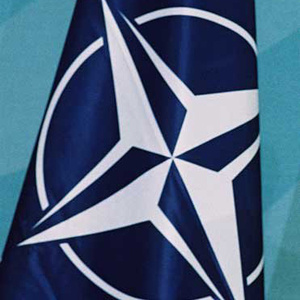NATO: New Threats, Vague Objectives

The 9/11 terrorist attacks, however, were a blessing in disguise for NATO and the US, which helped them clearly redefine their objectives and strategies in replacing the fear of Communism with Islamophobia, and gave them the excuse to invade Afghanistan and Iraq. The occupied countries were mouthwatering situations for NATO newcomers, prompting them to take action and participate in military and security operations under the NATO umbrella in those regions.
NATO’s greed in infiltrating the former backyard of the Soviet Union in Eastern Europe, the Caucasus, and Central Asia irritated Moscow and with the revival of Russian power during Putin’s presidency, plans to expand NATO zone actually backfired, most significantly evident in the case of the 2008 South Ossetia War between Russia and Georgia. With the failure of its encroachment on Moscow’s periphery, NATO decided to reorient its strategy and gather members under a new made-up threat, i.e. Iran, and advance the missile defense shield plan.
Nonetheless, several unfortunate developments have prevented the US-led organization from implementing its new Iran-ophobic strategies. First and foremost was the global economic crisis which bogged down most Western countries, especially the Eurozone members. The EU has not yet found relief from the consequences of the crisis and in some countries—such as Greece—the economic crisis has led to social crisis and undermined the government.
Meanwhile, nearly 10 years of presence in Afghanistan and 7 years of occupation in Iraq, have not led to tangible outcomes for Western troops, casting doubt over the prospects of victory in the so-called War against Terror. The chances of a successful mission are questioned, and in many NATO member states, the ruling government tends to criticize its predecessors for their Afghanistan and Iraq policies in order to maintain its voter base.
British Foreign Secretary William Hague’s recent remarks on the defense budget “over-commitment” of the Labour cabinet is significant in this regard: the US’ closest ally is telling Washington that it can’t continue spending as its predecessor did. Britain’s stance can be a relatively acceptable scale to measure the situation in other NATO-member countries. So it is no surprise that on the same occasion, US Secretary of Defense Robert Gates stated his country’s stance as: “As nations deal with their economic problems, we must guard against the hollowing out of alliance military capability by spending reductions that cut too far into muscle.” In line with Gates’ voiced concern, NATO Secretary General Anders Fogh Rasmussen also called for members of the organization to resist significant cuts in their defense budgets. However, the truth is that it is hard to convince allies to spend massive budgets on ambiguously defined missions.
To tackle this challenge, NATO key members, in particular the US, may try to project their fears onto other members in order to prompt them into more serious participation. Recent heightened security alerts in capitals of Germany, England and France over likely terrorist attacks could be a part of such attempts to keep the Europeans in constant fear from a non-existent threat.
Hillary Clinton’s remarks at NATO on the need to protect cyber and energy networks are a sign of US efforts to conceptualize new threats for the world, at least in short-term. Her comments may signal a transition from the age of classical military wars to the age of ‘soft’ wars. The future will determine the nature of the threat, but for Iran, the important point is to not be trapped in the new US game, and to remain alert.
Ali-Akbar Farazi is Iran’s former ambassador to Romania and NATO affairs analyst.

